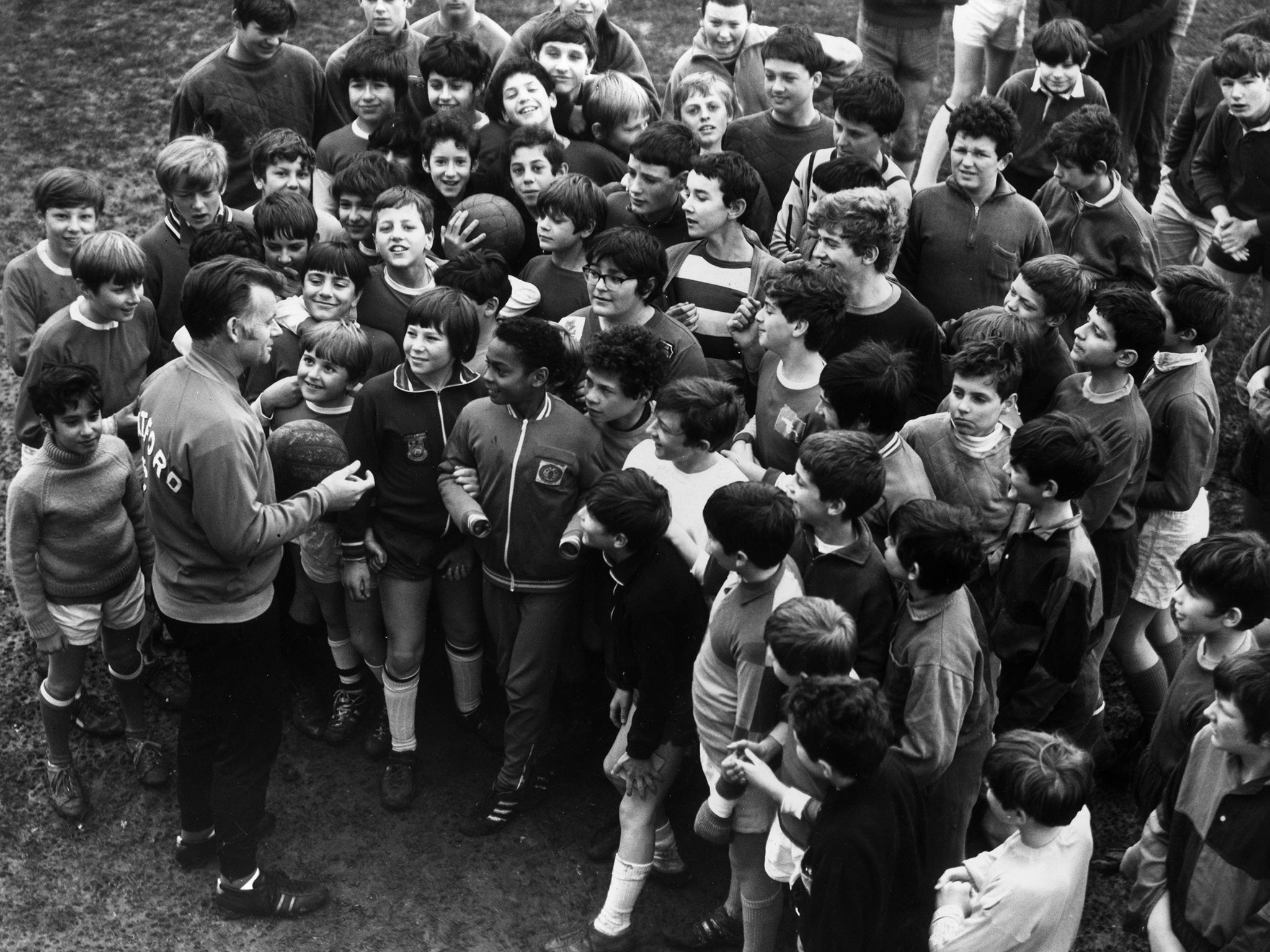Ken Furphy: Manager who made a big impact at Watford before heading to the US to work with footballing legends
Managed Pele, Moore, Best and Cruyff during a five-year stint in the States

Ken Furphy took charge of Pele, George Best, Johan Cruyff and Bobby Moore at various stages of his managerial career, but his most memorable work was accomplished with Watford. The world-class stars fell under the aegis of the enterprising north-easterner in the US during the second half of the 1970s and the early 1980s. By then, Furphy had already written himself into Vicarage Road folklore by steering the Hornets to the second tier of the English game and to an FA Cup semi-final, both for the first time in their history.
One of the new breed of young tracksuited bosses, he was an astute tactician, an inveterate compiler of dossiers on opponents and an enthusiastic individual willing to work around the clock. He was immensely approachable, too, believing firmly in forging strong community links between the clubs he served and their fans and, crucially, he was adept at working on a financial shoestring, as he proved with Workington, Watford, Blackburn Rovers and Sheffield United.
Surprisingly, though, his management momentum waned early. He was only 50 when he left Washington Diplomats, the last of his quartet of North American clubs, an age at which many a successful manager is just getting into his stride.
Furphy set off in the professional game as a teenager at Everton in 1950, but he fell by the Goodison wayside, making no senior appearances and slipping into the Cheshire League with Runcorn in 1951. His prospects were resurrected by returning to the Football League with Darlington two years later, and at Feethams he emerged as a capable full-back. He offered more energy than elegance, but he was admirably effective, earning selection for the Third Division North representative side of 1954-55. After more than 300 senior outings for the Quakers, Furphy joined basement rivals Workington as player-manager and guided them to promotion from the Fourth Division thanks to a third-place finish in 1963-64.
His next move, in November 1964, was to Watford of the third tier, again as player- manager, and he set about revitalising a club which seemed vulnerable following the departure of the previous manager, Bill McGarry. After a slow start Furphy succeeded, gradually building a team which, in 1968-69, the first season after his retirement as a player, lifted the divisional championship.
Men such as midfielder-cum-defender Keith Eddy, striker Barry Endean and full-back Duncan Welbourne were not dripping in stardust, but they were competent performers who subscribed to the team ethos and reaped the rewards. Though they struggled at the higher level, Watford embarked on an uplifting FA Cup run in 1970 which saw them knock out Stoke City before upsetting mighty Liverpool 1-0, courtesy of an Endean strike, to reach the last four, where they bowed out to the eventual winners, Chelsea.
In August 1971 Furphy amazed many observers – already startled when he became the first manager to allow a pre-match team talk to be televised – when he stepped down a division to accept the challenge of reversing the fortunes of Blackburn Rovers, recently relegated to the Third for the first time. A massive rebuilding job was required and he lifted the Lancastrians from their knees, laying down solid foundations for the future. However, finishing third in 1972-73, encompassing a 19-match unbeaten run, was the pinnacle of his achievement.
That was enough to attract the attention of top-flight Sheffield United, of whom he took charge in December 1973, inheriting an ageing team with poor reserves and little cash to spend. Making the most of outstanding talents such as midfielder Tony Currie and winger Alan Woodward, Furphy guided the Blades to sixth place in 1974-75, narrowly missing out on European football, only to be sacked the following autumn after a disastrous start to the new campaign.
At that point Furphy was only 44, seemingly with plenty of time to flourish, and he sought fresh impetus across the Atlantic with New York Cosmos, complete with Pele, in January 1976. However, after signing the Italian striker Giorgio Chinaglia to complement the incomparable Brazilian, he returned fairly ordinary results and soon left the Yankee Stadium. There followed spells with Miami Toros, Detroit Express – where his charges fleetingly included Best, Moore and his own son, Keith – and Washington Diplomats, with whom he briefly coached Cruyff.
Furphy left the Diplomats in 1981 and never managed professionally again. After returning to England he became a match summariser for local radio in the West Country, was involved in the sports equipment business and, for six days in 2000-01, joined Exeter City as technical director. That represented an unexpectedly low-key exit from the game to which he had devoted so much of his life.
Kenneth Furphy, born Stockton-on-Tees, County Durham 28 May 1931; played for Darlington 1953-62, Workington as player-manager 1962-64, Watford as player-manager 1964-68, then manager to 1971; managed Blackburn Rovers 1971-73, Sheffield United 1973-75, New York Cosmos 1976, Miami Toros 1976-77, Detroit Express 1977-80, Washington Diplomats 1981; died Teignmouth, Devon 17 January 2015.
Join our commenting forum
Join thought-provoking conversations, follow other Independent readers and see their replies
Comments
Bookmark popover
Removed from bookmarks